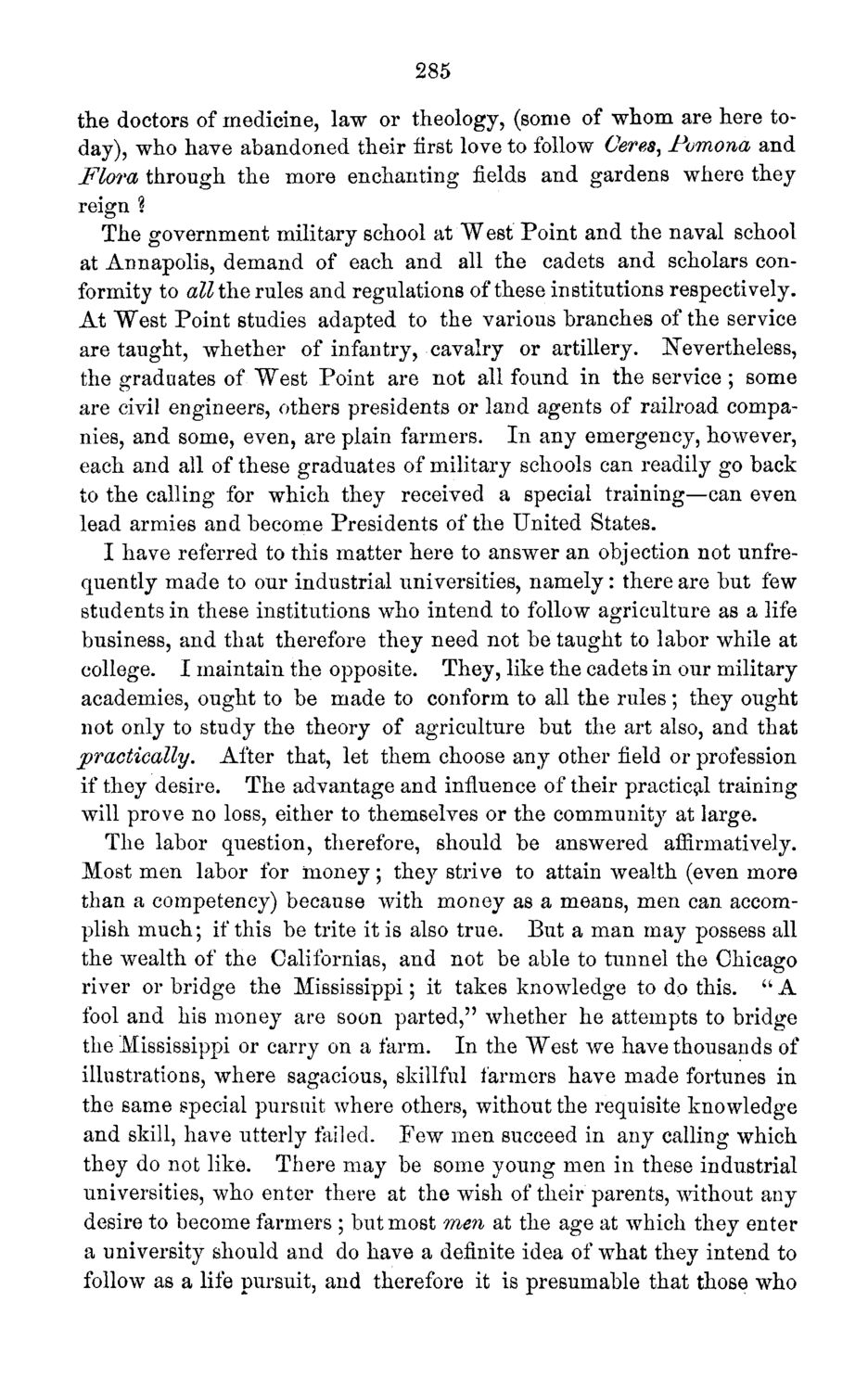| |
| |
Caption: Board of Trustees Minutes - 1871
This is a reduced-resolution page image for fast online browsing.

EXTRACTED TEXT FROM PAGE:
285 the doctors of medicine, law or theology, (some of whom are here today), who have abandoned their first love to follow Ceres, Pomona and Flora through the more enchanting fields and gardens where they reign ? The government military school at West Point and the naval school at Annapolis, demand of each and all the cadets and scholars conformity to all the rules and regulations of these institutions respectively. At "West Point studies adapted to the various branches of the service are taught, whether of infantry, cavalry or artillery. Nevertheless, the graduates of "West Point are not all found in the service ; some are civil engineers, others presidents or land agents of railroad companies, and some, even, are plain farmers. In any emergency, however, each and all of these graduates of military schools can readily go back to the calling for which they received a special training—can even lead armies and become Presidents of the United States. I have referred to this matter here to answer an objection not unfrequently made to our industrial universities, namely: there are but few students in these institutions who intend to follow agriculture as a life business, and that therefore they need not be taught to labor while at college. I maintain the opposite. They, like the cadets in our military academies, ought to be made to conform to all the rules; they ought not only to study the theory of agriculture but the art also, and that practically. After that, let them choose any other field or profession if they desire. The advantage and influence of their practical training will prove no loss, either to themselves or the community at large. The labor question, therefore, should be answered affirmatively. Most men labor for money; they strive to attain wealth (even more than a competency) because with money as a means, men can accomplish much; if this be trite it is also true. But a man may possess all the wealth of the Oalifornias, and not be able to tunnel the Chicago river or bridge the Mississippi; it takes knowledge to do this. " A fool and his money are soon parted," whether he attempts to bridge the Mississippi or carry on a farm. In the West we have thousands of illustrations, where sagacious, skillful farmers have made fortunes in the same special pursuit where others, without the requisite knowledge and skill, have utterly failed. Few men succeed in any calling which they do not like. There may be some young men in these industrial universities, who enter there at the wish of their parents, without any desire to become farmers ; but most men at the age at which they enter a university should and do have a definite idea of what they intend to follow as a life pursuit, and therefore it is presumable that those who
| |